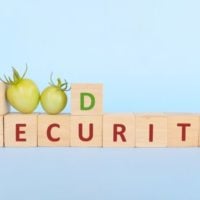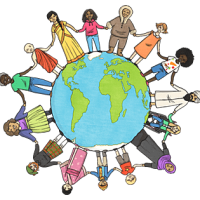As we step into 2025, the landscape of funding opportunities for non-governmental organizations (NGOs) is evolving rapidly. The global community is increasingly recognizing the vital role that NGOs play in addressing pressing social, environmental, and economic challenges. This recognition has led to a surge in grant opportunities, with various foundations, government agencies, and private donors eager to support initiatives that align with their missions.
For NGOs, understanding these funding avenues is crucial for sustaining their operations and amplifying their impact. In this dynamic environment, NGOs must stay informed about the diverse range of grants available across different sectors. From health and education to environmental conservation and women’s empowerment, the spectrum of funding opportunities is vast.
As we explore these categories, it becomes evident that each sector not only requires tailored approaches to proposal writing but also demands innovative strategies for donor engagement. By leveraging these insights, NGOs can enhance their chances of securing funding and ultimately drive meaningful change in their communities.
Global Health and Wellness Grants
Key Players in Global Health Funding
Leading foundations, such as the Bill & Melinda Gates Foundation and the World Health Organization, are at the forefront of this movement, offering substantial grants aimed at addressing health disparities and supporting innovative health solutions.
Securing Funding for Global Health Initiatives
To successfully secure funding in this sector, non-governmental organizations (NGOs) must develop compelling proposals that highlight their unique approaches to addressing health challenges. This includes demonstrating a clear understanding of the local health landscape, identifying specific needs within the community, and outlining measurable outcomes.
Strengthening Proposals through Collaboration and Engagement
Collaboration with local health authorities and other stakeholders can strengthen proposals by showcasing a united front in addressing health issues. Furthermore, engaging with potential donors through informative presentations and community impact stories can further enhance an NGO’s appeal.
Environmental Conservation Grants
As climate change continues to pose significant threats to ecosystems and communities worldwide, environmental conservation grants are gaining prominence in 2025. Funding opportunities are increasingly available for NGOs focused on biodiversity preservation, sustainable agriculture, renewable energy initiatives, and climate resilience projects. Organizations such as the Global Environment Facility and the United Nations Environment Programme are actively seeking partners to implement innovative solutions that mitigate environmental degradation.
To attract funding in this competitive arena, NGOs should emphasize their commitment to sustainability and demonstrate how their projects align with global environmental goals. Proposals should include detailed plans for monitoring and evaluating environmental impacts, as well as strategies for community engagement and education. By showcasing successful past projects and leveraging data-driven insights, NGOs can build credibility and trust with potential donors.
Furthermore, establishing partnerships with other organizations can amplify efforts and create a more compelling case for funding.
Education and Youth Development Grants
Education remains a cornerstone for societal progress, making grants for education and youth development a vital resource for NGOs in 2025. With a growing emphasis on equitable access to quality education, numerous funding opportunities are available for organizations working to improve educational outcomes for marginalized communities. Foundations like the Ford Foundation and the Open Society Foundations are committed to supporting initiatives that promote inclusive education and empower youth through skill development.
When applying for education-related grants, NGOs should focus on innovative teaching methodologies, curriculum development, and community involvement in educational initiatives. Proposals should clearly articulate how the project addresses specific educational gaps and outlines measurable outcomes for students. Engaging with local schools and educational authorities can enhance credibility and demonstrate a collaborative approach to improving education.
Additionally, showcasing success stories from previous projects can resonate with donors who are passionate about fostering educational equity.
Women’s Empowerment Grants
In 2025, the global movement for women’s empowerment continues to gain momentum, leading to an increase in grants dedicated to supporting gender equality initiatives. Organizations focused on women’s rights, economic empowerment, health access, and leadership development can tap into various funding sources from both governmental and private entities. Notable funders include the UN Women Fund for Gender Equality and the Global Fund for Women, which prioritize projects that uplift women and girls worldwide.
To secure funding in this sector, NGOs must articulate a clear vision for how their initiatives will empower women and promote gender equality. Proposals should highlight specific challenges faced by women in the target community and outline actionable strategies to address these issues. Engaging women leaders in the planning process can enhance project relevance and effectiveness.
Additionally, sharing testimonials from beneficiaries can provide powerful narratives that resonate with potential donors who are committed to advancing women’s rights.
Technology and Innovation Grants
Identifying Funding Opportunities
Funders such as the Omidyar Network and the Knight Foundation are keen on supporting projects that utilize technology to address social challenges, improve service delivery, or enhance community engagement.
Key Considerations for Proposals
When pursuing technology-related grants, NGOs should emphasize their capacity for innovation and adaptability. Proposals should detail how technology will be integrated into existing programs or how it will create new avenues for impact. Demonstrating a clear understanding of the target audience’s technological landscape is essential; this includes assessing digital literacy levels and access to technology within the community.
Strengthening Proposals through Collaboration
Collaborating with tech companies or academic institutions can also strengthen proposals by showcasing expertise and resources that enhance project feasibility.
Humanitarian Aid and Disaster Relief Grants
In an era marked by increasing natural disasters and humanitarian crises, grants for humanitarian aid and disaster relief are crucial for NGOs working on the front lines of these challenges. Funding opportunities are available from organizations such as the United Nations Office for the Coordination of Humanitarian Affairs (OCHA) and various international relief agencies dedicated to providing immediate assistance during crises. To effectively secure funding in this sector, NGOs must demonstrate their capacity for rapid response and effective resource management during emergencies.
Proposals should outline clear plans for disaster preparedness, response strategies, and post-disaster recovery efforts. Engaging local communities in disaster planning can enhance resilience and ensure that interventions are culturally appropriate. Additionally, sharing data on past successes in disaster response can build trust with potential donors who prioritize accountability and impact.
Arts and Culture Grants
The arts play a vital role in fostering cultural identity, community cohesion, and social change. In 2025, grants dedicated to arts and culture are increasingly available for NGOs focused on promoting artistic expression, cultural heritage preservation, and community engagement through the arts. Organizations such as the National Endowment for the Arts (NEA) and various private foundations are committed to supporting projects that enrich cultural landscapes.
When applying for arts-related grants, NGOs should emphasize the transformative power of art in addressing social issues or enhancing community well-being. Proposals should outline specific artistic initiatives that engage diverse audiences while promoting inclusivity and accessibility. Collaborating with local artists or cultural institutions can enhance project credibility and foster community ownership of artistic endeavors.
Additionally, showcasing previous successful projects through visual documentation or testimonials can resonate with donors who appreciate the impact of arts on society. In conclusion, as we navigate through 2025, NGOs have a wealth of grant opportunities across various sectors at their disposal. By understanding the unique requirements of each funding category and employing strategic proposal writing techniques alongside effective donor engagement strategies, organizations can significantly enhance their chances of securing vital resources needed to drive impactful change in their communities.
The future holds promise for those who are prepared to adapt, innovate, and collaborate in pursuit of their missions.









































